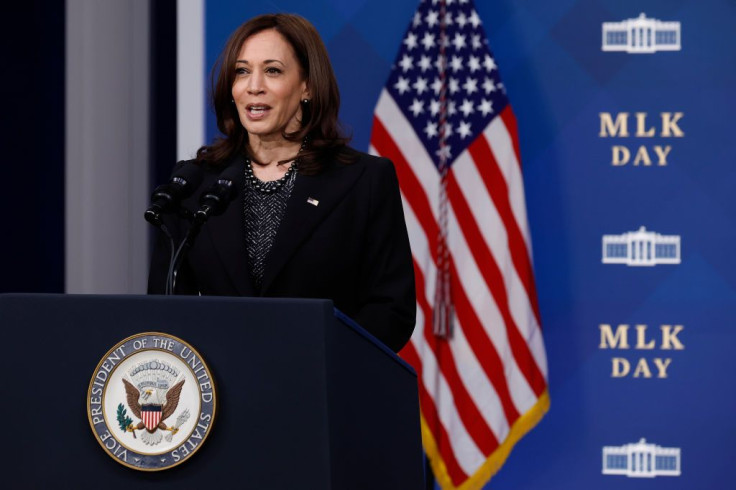
Immigration has been a political vulnerability for Vice President Kamala Harris as she steps up to the top of the Democratic ticket, with her detractors calling her the "border czar" for her involvement in the southern border. However, while immigration under the Biden administration surged— and later went down again— a new report by the Associated Press shows that the Vice President opted for a nuanced approach when dealing with the issue— playing the long game.
Shortly after taking office, President Biden tasked Harris to deal with the "root causes" of immigration from El Salvador, Honduras and Guatemala, the so-called Northern Triangle.
Unlike former President Donald Trump and his Republican allies try to say, Harris was not tasked to be "border czar," as she did not deal with policy to stop immigration at the southern border. Instead, she focused her time on boosting private investment in those countries by creating jobs to bolster economies.
This strategy, however, was a decidedly long-term, and limited, approach to a humanitarian crisis, allowing Republicans to tie her to the immigration issue, according to the Associated Press. This despite the fact that migration from the Northern Triangle declined and those from other nations surged.
But despite different narratives, one thing remains true: her involvement in the border is nuanced.
Harris' followers say she demonstrated leadership by leveraging her position to win investments that might curb migration years down the road.
"She felt— and I think she was right— that what she could do the most was help basically lead the effort to draw in investment, using the confidence that a relationship with the White House would give to investors," said Ricardo Zuniga, a former State Department official who specialized in the Northern Triangle and who traveled with Harris to the region.
Others, however, think she should've opted for a less risky and more immediate path, ensuring the problem only worsened.
"She was like 'nope, I'm just the root cause,'" said Mark Krikorian, executive director of the Center for Immigration Studies, which advocates for less immigration. "Even if it worked, it's the sort of thing that takes generations, not one term."
The now-Democratic presidential candidate received her border assignment when migrant apprehensions were already on the rise, leading some in Harris' team to raise concerns about it being a "no-win assignment," according to the Associated Press.
Harris traveled to Mexico and Guatemala in June 2021, where she defended the fact she had not been to the U.S.-Mexico border during an interview with NBC's Lester Holt. She also drew criticism on that trip for warning migrants bluntly, "don't come" to the U.S.
The Vice President then sought to work with multinational companies— like Visa, Nestle and Meta— with smaller nonprofits and Latin American business, all of which pledged to increase their investment or bolster their work with at-risk communities.
Her office has said the Vice President's efforts have generated more than $5.2 billion in investment promises.
In her endeavors, Harris also sought to address endemic corruption that has fueled migration from Central America. She would go on to stop Guatemala's former president, Alejandro Giammattei, from overturning the 2023 election of his successor, Bernardo Arevalo, according to Luis Von Ahn, a U.S.-based technology entrepreneur from Guatemala.
"Giammattei didn't want to leave power, the administration of Kamala Harris came and told him 'stop (messing) around," said Von Ahn, the founder of the language app Duolingo. "That's a big help to Guatemala, if an extremely corrupt president doesn't want to leave it's terrible and (his exit) lets us be a better country."
Nevertheless, independent analysts still debate the effectiveness of her tactics, being skeptical that Harris' approach was responsible for the migrant dip. They said the decrease was likely driven by regional factors, including the ascension of El Salvador's new president and his aggressive drive to combat violent crime.
"Even a whole lot of economic development doesn't curb immigration in the way countries hope it will," said Jualia Gelatt, associate director of the Migration Policy Institute in Washing. She added that investment can take years to alter migration patterns— if it ever does.
© 2025 Latin Times. All rights reserved. Do not reproduce without permission.




